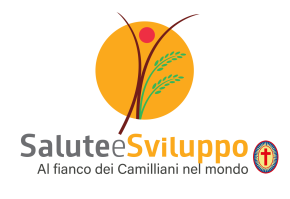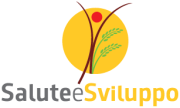The emotion of the mission: Mariella
Mariella, would you like to tell us how you approached the world of international cooperation and the third sector?
At the end of my high school studies in Sardinia, I moved to Forlì to continue my training. I have always been interested in what was happening on the international scene and so I chose to attend the degree course in International and Diplomatic Sciences. During the last years of my university career I specialized in the subject of human rights, discussing a thesis on the different reaction of the international community with respect to the cases of Kosovo and Chechnya.
Subsequently, I moved to Rome to attend a master’s degree in International protection of human rights, carrying out an internship at the Ministry of Foreign Affairs. During this experience I approached the world of Non-Governmental Organizations and seeing their work, my interest in the world of the third sector became stronger.
Later, I earned another master’s degree in Project Manager of international cooperation and during the internship experience I came into contact with Salute e Sviluppo, where – after a professional interlude in Spain – I started working permanently.
What do you do at Salute e Sviluppo?
I was immediately involved in the design and management of projects, since 2013 I have also been in charge of the general administration of SeS.
What did you like about Salute e Sviluppo as an organization?
I immediately liked Salute e Sviluppo both for the stimulating and sociable working environment in the office in Rome, and for the type of projects. They are continuous over time.
Often, once a project has been completed, there is no subsequent control over the territory. The sustainability of Salute and Sviluppo projects over time is instead guaranteed by the fact that it avails itself of the support and assistance of the Camillians in the various countries of intervention, who – regardless of the duration of the project – will always be present in the area for their mission, that is health support for the most vulnerable sections of the population With SeS we can improve their hospital services or build new ones.
Also, I strongly appreciate the multicultural and inter-religious exchange. I observed during the missions how people who often profess a different religion work alongside the missionaries. There is a lot of mutual respect and esteem, as well as full cooperation.
What prompted you to choose to leave for the various missions?
As said before, my passion for the third sector was born during my university career, where I approached subjects that dealt with human rights. Then the transition was natural: after having dealt with the defense of human rights, with ministerial bureaucracy, I realized that I needed something more. I felt the need to concretely see the work in the field, get to know the beneficiaries, see the activation of services. I can summarize that my eyes needed to see what I was projecting on paper.
What excites you about your work?
I am thrilled to see the birth and the end of something: to be able to leave on site and see a space where there is nothing … go back and be able to observe its transformation. For example, in one of my first missions, in Benin, I was thrilled to see – after more than a year from the start of the project – how an arid and isolated land had turned into a properly functioning hospital and had also become a center of aggregation.
It is wonderful to see how the project of Salute e Sviluppo, whether large or small, have a concrete impact on the life of the beneficiaries, transforming and improving it.
Leave for countries where the conditions you find are not the easiest. Is it tiring for you?
Surely you need to have a great spirit of adaptation. It serves both for the conditions of daily life and for situations of loneliness that sometimes have to be faced.
Let me explain better .. when you go on a mission you don’t spend most of your time in a big city, where you have the opportunity to meet co-workers or people who work in different sectors from countries all over the world. The stay in the capital usually lasts only a few days. It is a moment of transition before immerging myself fully in the real local context.
Our projects are found above all in the most fragile and isolated areas of a country. Consequently, we find ourselves in villages where there are hardly any other “expatriates” and / or there is no security to be able to go out alone.
What aspect do you like about the missions?
Without a doubt the meeting with the local population. In large cities they are used to the arrival and presence of foreign personnel, there is more movement. In small villages, which have no relations with the outside world, people are welcoming, joyful. children are curious, hospitable, they want to touch you, chat and play with you.. , everyone says hello, but above all there is a strong community spirit in which everyone knows each other. It is truly amazing to feel this human warmth.
In which country did you find more difficulties?
I believe the Central African Republic. It is one of the poorest countries in the world, where the main difficulty is the lack of means to work, but it is also the country that has remained in my heart the most.
While in Burkina Faso today there is a big security problem. Compared to my first missions, from 2010 to today I have seen a notable change in the country: from really quiet to rather dangerous due to the terrorist attacks that have sometimes hit the capital and especially the north and east of the country since 2016.
What about the other continents?
I have served missions in Peru and Vietnam.
In both cases, I was impressed by the close coexistence between high living standards and poverty even more evident than in some African countries. For example, in Lima, Peru, this diversity stands out in an overwhelming way: from one corner of the same neighborhood to the other, the scenario you encounter changes completely.
The experience in Vietnam was also strong: we move from developed and tourist metropolises such as Hoc Chi Minh to villages in the south of the country where poverty is extremely high.







